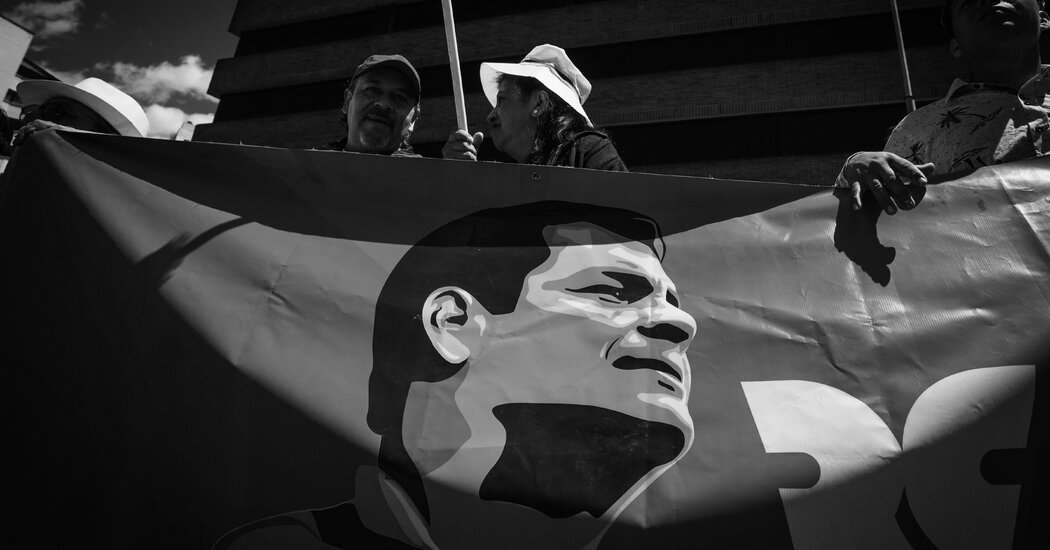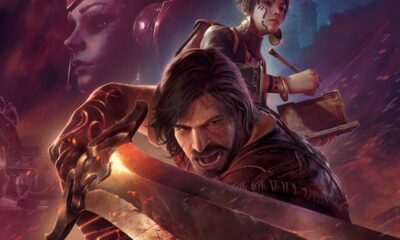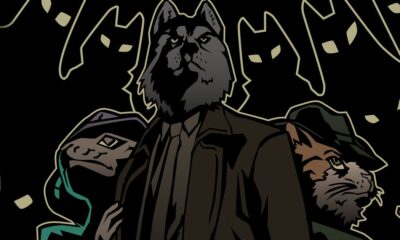Breaking News
Opinion | Rafael Correa’s Shadow and Why Ecuador Can’t Move On

While selling tickets for the end-of-year play at my daughter’s school in June, my phone suddenly started buzzing incessantly. People were calling and texting to inquire about my well-being. It turns out, Rafael Correa, the former president of Ecuador, had just posted on the social media platform X, criticizing an interview I had given to El País. In that interview, I mentioned that his political party was struggling to counter the rising popularity of the current president, Daniel Noboa.
Mr. Correa, who is known for his intolerance of criticism, wrote from exile in Belgium: “Does anyone know who Caroline Ávila is?” This was a signal to his millions of followers. In a matter of minutes, I found myself at the center of a digital firestorm — with posts defending my work, as well as posts attacking me and the journalist who wrote the El País story. That day, I truly grasped the extent of Mr. Correa’s enduring influence in Ecuador.
Despite not residing in the country, Mr. Correa remains one of the most influential — and divisive — figures in Ecuadorean politics. His presence is sustained not only by his supporters but also by his detractors, who can’t seem to stop discussing him but have failed to present a compelling alternative. Instead, they have simply brushed Mr. Correa off as a relic of the past. Ironically, this dismissal seems to have only bolstered his hold on the people.
Mr. Correa served as the president of Ecuador from 2007 to 2017. His administration oversaw a surge in public investment driven by substantial oil revenues and Chinese loans, which funded ambitious infrastructure projects and expanded access to healthcare and education. For many Ecuadoreans, these were years of stability and a robust state presence. However, during Mr. Correa’s tenure, the concentration of executive power, the erosion of institutional checks and balances, and repeated attacks on journalists and opposition leaders raised serious concerns about democratic regression.
Since 2017, Mr. Correa has been living in self-imposed exile in Belgium, where he was granted political asylum in 2022. He has been convicted on corruption charges in Ecuador and sentenced to eight years in prison there.
Although legally prohibited from running for president again, Mr. Correa still leads Ecuador’s largest political party and maintains a significant digital presence. With over one million followers on TikTok and four million on X, Mr. Correa continues to shape Ecuador’s political narrative. On TikTok, he comments on current events, criticizes the government, and defends his administration’s legacy, often using humor and sharp language to engage with younger audiences. He advocates for his party’s priorities and messaging, reinforcing his position as a formidable political force.
This Sunday, Ecuadoreans will cast their votes in the second round of a presidential election. Regardless of the outcome, it appears that Mr. Correa’s influence is unlikely to diminish. Neither of the two candidates seems poised to present a bold and coherent vision to replace the one he left behind.
Mr. Correa promised certainty in uncertain times, but critics contend that his government weakened the rule of law and set troubling precedents. Today, this dual legacy — of material progress for some and institutional fragility for others — remains at the core of his enduring influence.
Three presidents have succeeded Mr. Correa’s left-wing administration: Lenín Moreno, Guillermo Lasso, and the current president, Mr. Noboa. The latter two belonged to the right of the political spectrum, and Mr. Moreno — who previously served as Mr. Correa’s vice president and successor — swiftly shifted towards the right upon assuming office. Meanwhile, the country’s situation has deteriorated. The poverty rate climbed from 21.5 percent in December 2017 to 28 percent in December 2024. Homicide rates surged from 5.6 per 100,000 individuals at the end of 2016 to 38.76 per 100,000 individuals at the end of 2024. In the absence of credible leadership, many voters yearn for the stability of Mr. Correa’s era.
The candidates in Sunday’s election are Mr. Noboa, a 37-year-old entrepreneur, and Luisa González, a former legislator and Mr. Correa’s chosen successor. It is a tight race that mirrors the deep political division in the country. In 2023, Mr. Noboa ran against and defeated Ms. González, aided by support from a coalition of anti-Correa factions.
Ms. González is likely to benefit from nostalgia for the Correa years; most of the former president’s supporters are expected to vote for her. She echoes Mr. Correa’s centralized approach to security policy and advocates for a strong state role in law enforcement. However, her platform lacks clear proposals on judicial reform and institutional safeguards. She has provided few specifics on strengthening judicial independence or collaborating with international partners — critical gaps given the transnational nature of the organized crime networks currently destabilizing Ecuador.
One of Mr. Noboa’s primary electoral challenges is the turmoil that has plagued his administration. He has maintained a publicly contentious relationship with his vice president, and a significant oil field deal was abruptly terminated following public outcry over a lack of transparency. Accusations of authoritarianism have been leveled against his administration for its increasing militarization to combat crime, particularly after the tragic incident where four children were found dead shortly after being detained by a military patrol.
To move forward, the country must offer voters a new vision: Ecuadoreans desire security without military repression, a robust economy without corruption or impunity, and social justice without sacrificing political independence.
Ecuador needs a more robust intelligence apparatus for criminal investigations, supported by an independent judiciary. The incoming president should prioritize investments in education and youth reintegration programs to prevent recruitment into organized crime. While Mr. Correa’s model emphasizes a strong state as the sole path to societal well-being, Ecuador can demonstrate that a transparent, efficient state is equally capable of fostering growth and equity.
That Sunday at my daughter’s school, when the online world swiftly reacted to Mr. Correa’s post, I realized the extent of his enduring influence. However, something else transpired. The public outcry in defense of my work was potent enough for Mr. Correa to delete the post and issue an apology. He was unaware of me or my work as an academic and independent analyst. Apparently, it was perplexing to him that someone could exist beyond the political divide.
In Ecuador, you are either with Mr. Correa or against him. Anything else is met with suspicion. Yet, this is the very cycle the country must break free from. To truly transcend his legacy, a leader must inspire a fresh vision of the state. Until that occurs, Ecuador will remain a nation suspended between memory and opportunity.
Caroline Ávila Nieto is an Ecuadorean academic and researcher with a Ph.D. in communications. She teaches at the University of Cuenca, the University of Azuay, and Simón Bolívar Andean University. Her research focuses on political communication and the critical understanding of electoral and governmental processes in Ecuador. She resides in Cuenca, Ecuador.
The Times is committed to publishing a diversity of letters to the editor. We’d like to hear what you think about this or any of our articles. Here are some tips. And here’s our email: letters@nytimes.com.
Follow the New York Times Opinion section on Facebook, Instagram, TikTok, Bluesky, WhatsApp and Threads.
-

 Destination8 months ago
Destination8 months agoSingapore Airlines CEO set to join board of Air India, BA News, BA
-

 Breaking News9 months ago
Breaking News9 months agoCroatia to reintroduce compulsory military draft as regional tensions soar
-

 Tech News12 months ago
Tech News12 months agoBangladeshi police agents accused of selling citizens’ personal information on Telegram
-

 Gadgets3 months ago
Gadgets3 months agoSupernatural Season 16 Revival News, Cast, Plot and Release Date
-

 Productivity11 months ago
Productivity11 months agoHow Your Contact Center Can Become A Customer Engagement Center
-

 Breaking News10 months ago
Breaking News10 months agoBangladesh crisis: Refaat Ahmed sworn in as Bangladesh’s new chief justice
-

 Gadgets3 weeks ago
Gadgets3 weeks agoFallout Season 2 Potential Release Date, Cast, Plot and News
-

 Toys12 months ago
Toys12 months ago15 of the Best Trike & Tricycles Mums Recommend






















